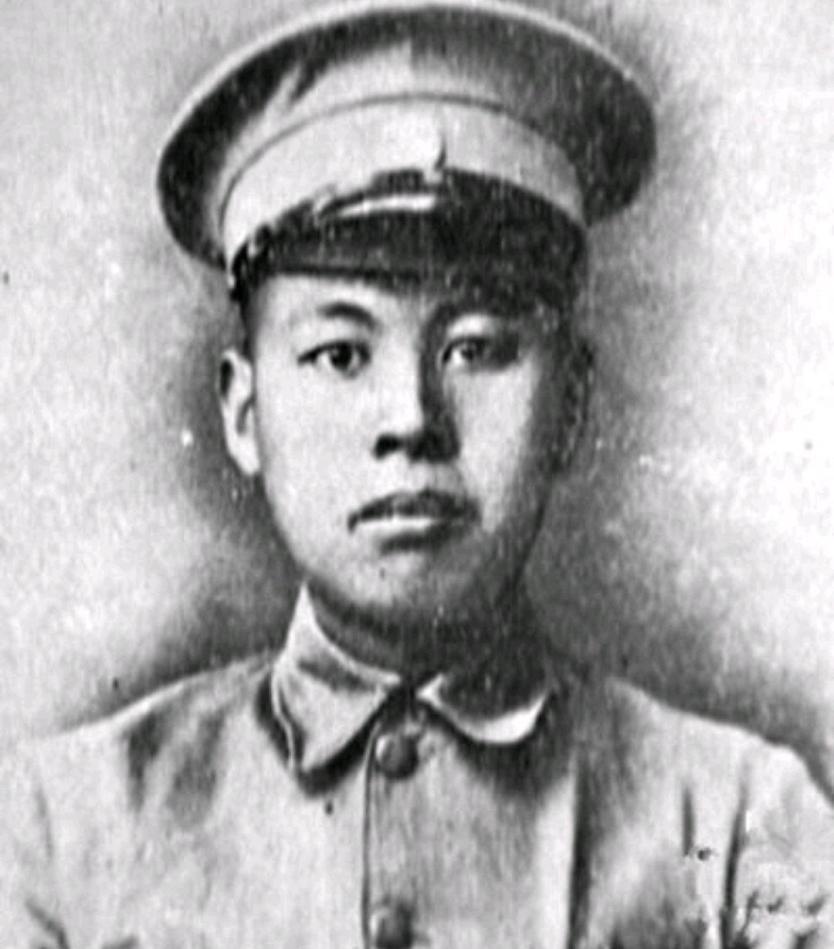He was one of Chiang Kai-shek's thirteen Taibao and died too unjustly, and Zhang Zhizhong stood in front of his tomb for a long time
In 1932, Chiang Kai-shek instructed his henchmen to set up a secret service organization modeled on the Italian Black shirts, the "Chinese National Rejuvenation Society", of which thirteen backbone organizations were known as the "Thirteen Taibao". The outcomes of these thirteen people varied, some went to Taiwan after 1949, some were captured, and some were executed as scapegoats, such as today's Feng Wei.

Feng Ti, a native of Xiangtan, Hunan, was born in 1903 from a well-off family and studied at Xiangyin Normal School. In the spring of 1924, Feng Ti went south to Guangzhou to be admitted to the Huangpu Phase I, and was a classmate of Chen Geng and Zuo Quan. On the recommendation of his fellow villager Song Xilian, he joined the Kuomintang and engaged in military political work after graduation.
He was able to speak well and write well, shrewd and capable, and left a deep impression on Chiang Kai-shek. Jiang also summoned him alone and gave him his signed armor. In May 1926, he was promoted to the acting director of the Political Department of the First Division of the First Army of the National Revolutionary Army, and in June of the same year, he became a cadre member of the Huangpu Alumni Association, fighting with Kang Ze and others.
On April 12, 1927, Chiang Kai-shek launched the April 12 counter-revolutionary coup, and the First Division of the First Army of the National Revolutionary Army was also involved in bloodshed. Although he was loyal to Chiang Kai-shek, he did not understand his murderous qing-communist and anti-communist actions. During this coup d'état, Zhou Enlai was unfortunately caught by the soldiers of the Seventh Regiment of the First Division, and the officers and men of the division had a fierce debate about how to deal with it. At the Whampoa Military Academy, Zhou Gong was Feng's teacher, and he thought that this person was talented and first-class, so he allowed his subordinates to secretly release him.
On the eve of the outbreak of the War of Resistance Against Japanese Aggression, the defendant was secretly sent to Chiang Kai-shek, who was deeply shocked and believed that the loyalty of Feng Ti was unreliable, and that this person could be used but could not be reused.
In May 1938, He was transferred to changsha police commander, and during his tenure, the "Changsha Fire Case" shocked the whole country.
At the end of this year, the Kuomintang military and police were ordered to set fires to the whole city of Changsha, the capital of Hunan Province, and implement the so-called "scorched earth policy." Because they acted hastily, unsuspecting citizens rushed to flee, crowded and trampled, causing many casualties, and the fire burned down more than 100,000 houses and shops, causing extremely heavy losses.
When the fire broke out, who ordered the fire? The truth is still not known to all. Overseas scholars also have inconsistent understanding of the Changsha fire, so this matter has become a mystery for eternity.
Changsha was suddenly burned by fire, and one of the most reliable and convincing claims is that the frontline war reports misheard the place names.
Yueyang has a place called XinqiangHe, which is 35 kilometers away from Miluo and 80 kilometers away from Changsha. According to Zhang Zhizhong's orders, after the enemy arrived in Miluo, he listened to the orders to clear the field. Due to the tight war situation and the panic of the people, the people of the Security Command heard on the phone that the Japanese army had arrived at The New River; they began to operate at two o'clock in the night of the 13th.
Some people say that zhang Zhizhong "ordered the arson", which was confusing.
After the endgame of the Wenxi fire, domestic public opinion was in an uproar, which made the Chongqing authorities very passive. The three parties involved in the "Changsha arson case": Changsha Police Commander Feng Wei, Changsha Second Regiment Commander Xu Kun, and Hunan Provincial Capital Police Chief Wen Chongfu were quickly brought under control and sent to court for trial.
In court, Xu and Wen claimed to have obeyed the orders of the Security Command and pushed the blame on Feng Wei. Standing in the defendant's seat, he did not deny it, promising that the fire was a mistake he could not forgive. He had the bottom line in his mind: this incident was caused by the torch parade held that night to celebrate the 72nd anniversary of Sun Yat-sen's birth, which caused small fires in several places, and some of the soldiers who set the fire thought it was a signal of arson and began to set fire; moreover, Zhang Zhizhong had privately promised him that he would intercede with Chiang Kai-shek and be sentenced to a few years at most, and then released on bail later.
The result of the verdict at that time was that Feng Ti was sentenced to ten years in prison, but after Chiang Kai-shek inspected Changsha and received the verdict, he came to borrow a knife to kill people, and wrote on his pen the eight big characters of "dereliction of duty and harm to the people, all shots are executed", and Feng Ti was shot for this, when he was only 35 years old.
After his death, Yu Jishi received a secret report that the guards on the execution ground had swallowed a gold pocket watch and a Parker gold pen. Yu verified that there was something wrong, called the guard in, and fired a pistol at him in the chest. Afterwards, people said, "This unjustly dead ghost also took away a guard." ”
Zhang Zhizhong was Feng's teacher, and one day he came to Feng's cemetery, took off his military hat, and stood with his head bowed for a long time.